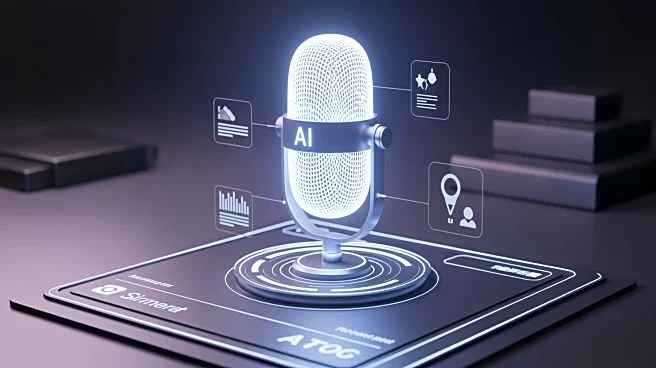What's Happening?
Tim Sweeney, CEO of Epic Games, has entered the debate on the use of generative AI for video game voices, suggesting that AI could enhance in-game dialogue by creating infinite, context-sensitive, personality-reflecting
dialogue tuned by human voice actors. Sweeney argues that AI technology increases productivity and could lead to better games rather than fewer jobs. His comments follow criticism of AI-generated voices in the game Arc Raiders, sparking discussions on the impact of AI on voice acting and the gaming industry.
Why It's Important?
Sweeney's remarks highlight the growing role of AI in the gaming industry, potentially transforming how games are developed and experienced. The use of AI in voice acting could reduce costs and increase the complexity of in-game interactions, impacting voice actors' employment and the industry's economic dynamics. The debate reflects broader concerns about AI's impact on creative industries and the balance between technological advancement and preserving human roles.
What's Next?
The gaming industry may see increased adoption of AI technologies, prompting discussions on ethical guidelines and regulations. Stakeholders, including voice actors and developers, may need to adapt to new roles and opportunities created by AI. The debate could influence public policy on AI use in creative industries, shaping future industry standards.
Beyond the Headlines
The discussion raises questions about the ethical implications of AI in creative fields, including the potential loss of human artistry and the need for regulations to protect creative professionals. It may lead to a reevaluation of the value of human creativity versus technological efficiency.








